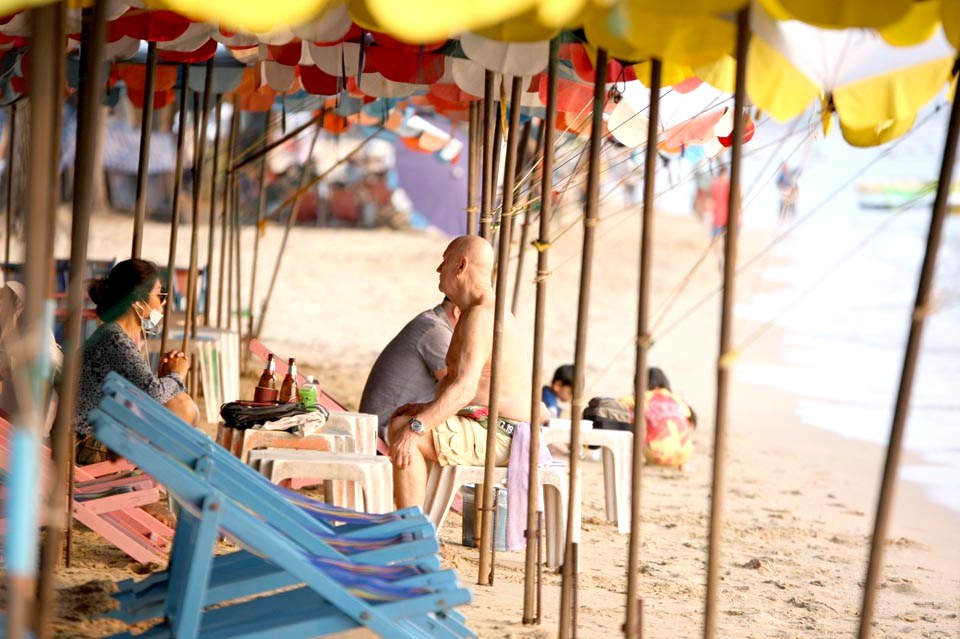
A random group of 20 western foreigners holding both "O" and "O/A" retirement visas and extensions of stay have told Pattaya Mail that they must reluctantly remain in Thailand. They say that the latest rules of the Ministry of Foreign Affairs, enforced by embassies, are hugely discriminatory to retirees wishing to take a break abroad.
"Before Covid," said British retiree George Hunter, "we simply got a re-entry permit to return to Thailand. But the latest Thailand Pass system requires us oldies to have medical insurance which is broadly-based, not just Covid specific, to a minimum of US$100,000." He added that no other tourist or expat groups have this restriction because those people need only Covid cover of US$50,000 which is easily available to all age groups up to 100 years. It is provided online, without reference to age, by the Thailand General Insurance Association consortium, amongst other providers.
Other elderly Pattaya expats agreed. A German expat Joachim, aged 79, said he has had no trouble renewing his "O" visa at the immigration bureau but would need high insurance to return from abroad. "Insurance companies want profits and are not interested in covering the elderly for diseases broader than Covid." He added there were some policies around which claimed to cover people of his age, but they were either hugely expensive and/or contained exclusion clauses which ensured no claim would ever be successful.
Thai embassies round the world are not fully consistent with their instructions. For example, the website of the Oslo-based embassy says there is a last-resort, self-insure option. If retirees cannot find general health insurance, they can provide a frozen bank account of three million baht (roughly US$100,000) which can be opened only for medical, presumably hospital, treatment. But such a bank account must be confirmed as truly frozen by both the bank in question and by a Thai government official. So far anyway, this option is not available in other countries.
Pattaya expats say the entry rules are discriminatory because other elderly expats have a much easier time. "Those on one year marriage or family visas, or those with an Elite visa, are not subject to these extra insurance regulations," said Charles Fraser who wants to return to UK to see his relatives but is afraid he can't get back. Indeed he believes that the basicintention is to push retirees onto the Elite option which offers a five year plan for a non-returnable fee of 600,000 baht and no further need to show cash in the bank.
An alternative for some expats on retiree visas is to leave the country without a re-entry permit and obtain a tourist visa prior to coming back. This visa can then be exchanged for a non-immigrant "O" visa at Thai immigration provided the expat can show a regular income or 800,000 baht in a Thai bank. However, they would need to do that every time they left Thailand, a loophole which could well be problematical.
Government spokespeople usually affirm that adequate medical insurance is necessary to avoid unpaid bills in Thai hospitals. However, the latest rules appear to ring-fence expats with a visa based on retirement, whilst taking the real risk with all other entrants to Thailand. The recent publicity about foreigners in Thai hospitals pleading for crowd-funding to have urgent operations, or to return home, have mostly concerned much younger tourists. Illness is not confined to the elderly.




Inga kommentarer:
Skicka en kommentar